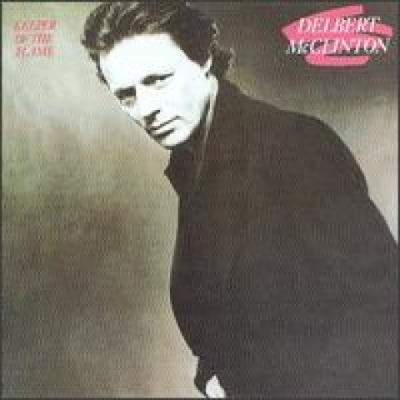
Keeper of the Flame
by Thom JurekKeeper of the Flame was the follow-up to Second Wind and was to prove once again to be the last record Delbert McClinton would record for a label that was going out of business; in this case it would be Capricorn. The sound of the album is quite different in that it was cut in Los Angeles rather than in Macon. Also, there are no Muscle Shoals players on the date. McClinton's road band was augmented by bassist Willie Weeks, pianist John Jarvis, and Hammond B-3 king Old Joe Walk; Bob Harwell was the entire horn section, playing all four saxophones with John Hug; and Billy Sanders played guitars (they were with Johnny Sandlin on Second Wind as well). Sandlin was still in the producer's chair and seemed to understand intrinsically all of the seeming contradictions in McClinton's sound -- he exploited them to the maximum. The album is a laid-back mix of killer soul, white-hot R&B, and country funk; there's little rock & roll on this set, perhaps because Jarvis' style was already so rooted in the barroom barrelhouse style of pianists there was no room for another pursuit. In terms of material there was no shortage of great songs. Randall Bramblett's "Plain Old Makin' Love" is restless country-soul; with its Memphis-styled horn lines grafted onto the refrain, one could hear Otis Redding singing the sh*t out of this tune. As it stands, McClinton makes it his own. In addition there are two Don Covay covers, both "Have Mercy" and "See Saw," as well as a Doc Pomus tune ("A Mess of Blues") and Chuck Berry's "I'm Talking About You." Glen Clark's "I Don't Want to Hear It Anymore" from the old Delbert and Glen days resurfaces here completely reworked and funked up to the max. The album's highlight, however, is the oft covered yet never equaled McClinton tune "Two More Bottles of Wine" with a trio of backing vocalists singing gospel. Rather than the anthem Emmylou Harris made of it; here it is a hymn of resignation and acceptance that, come what may, right now is all you've got to make the most of it. McClinton's harp solo adds to the street-cred nature of the tune. This is a soulful shoulder shrug that could have closed the album but instead precludes "See Saw." No matter. Like its predecessor, there isn't a weak link in this bunch, and despite the fact that the album went nowhere, it endures as a prime example of McClinton's genius as a singer, writer, and performer.
